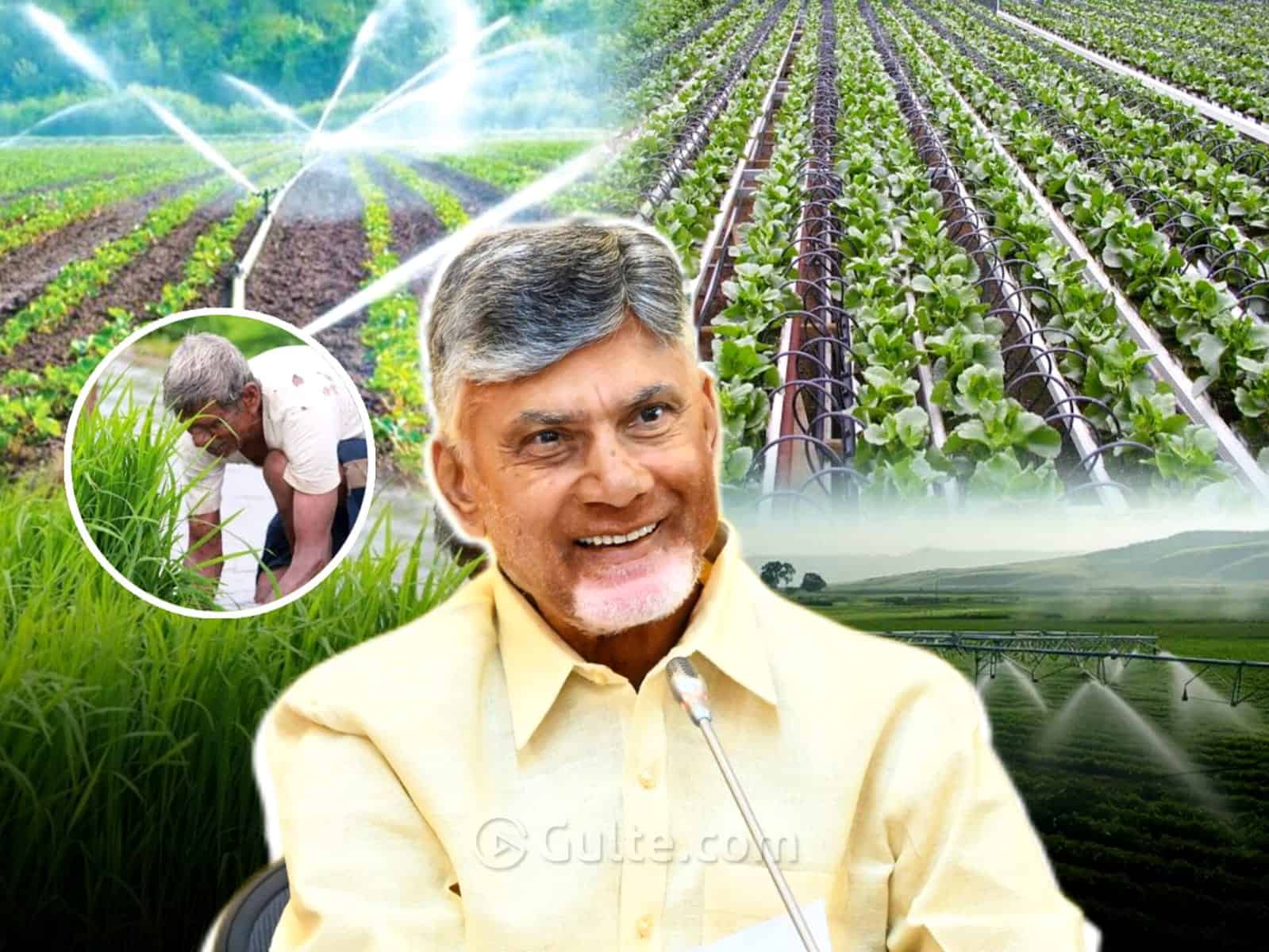Andhra Pradesh is leading others in the country in micro irrigation. In the last financial year 2024-25, the state has successfully irrigated 1,17, 880 lakh hectares, through drip and sprinkler irrigation methods. Gujarat (1.16 lakh hectares), Uttar Pradesh (1.02 lakh hectares, Karnataka (97,400 lakh hectares)and Tamil Nadu (90,800 lakh hectares) occupied the subsequent positions.
Consider this in contrast to Andhra Pradesh dropping to the sixth position, during the YCP rule.
However, after assuming charge as the CM, Naidu revived the irrigation practices and AP secured 4th position in just three months. Later, he increased subsidies to the SC and marginal farmers and ensured that the state reclaimed the first position in micro irrigation.
Fertigation — use of microfertilisers, enhanced the impact of micro irrigation, which was evident in Rayalaseema. The area which usually reels under drought-like conditions has turned into a horticulture hub, due to fertigation. Thanks to Chief Minister N. Chandrababu Naidu who has been instrumental in making the state clinch the first position.
Naidu has always been projected an anti-farmer leader by the Opposition YCP and even termed as ‘harbinger of loss’ to farmers, while in fact, he introduced Israeli technology of micro irrigation in Kuppam and even faced inquiry of a panel, that tried to prove him wrong.
Firm and strong, Naidu defended his move of introducing the technology in the state.
After assuming power, former CM Y.S. Rajasekhara Reddy constituted Chalapathi Commission to investigate into ‘any lapses in the implementation of Israeli technology introduced and implemented in Kuppam’ during Naidu’s rule.
During the probe held in Kuppam, the panel mad him sit on a bench and wait in the corridor for long before being called for questioning. The panel members asked Naidu to have his lunch and then depose before the Commission but a dedicated Naidu, replied he does not require lunch and that he would have his meals only after completion of the inquiry.
He showed his commitment and determination in implementing micro irrigation methods and confidently advocated the Israeli technology, which reflected his honesty and strong character.
Long before this incident, Naidu submitted reports underscoring the need to switch to micro irrigation to the Centre, while heading the Micro Irrigation Task Force. The reports highlighted several benefits of adopting of micro irrigation in agriculture like boosting crop yield, reducing water usage, and enhancing overall agricultural productivity and economic growth.
Cut to present, Andhra Pradesh has clinched the top position in the implementation of micro irrigation and reaping its benefits.
Micro irrigation gains more significance in the face of Haryana reeling under severe water crisis, due to indiscriminate digging of borewells which led to depletion of groundwater levels.
Naidu gives equal importance to agriculture, as much as to technology and development.
Recently, he sent an official delegation from AP to Rajasthan to study the methods being adopted to prevent the state from turning into a desert. In addition, he also makes it a point to set groundwater targets during every Collector’s Meet, making it evident that he always is supportive of farmers and agriculture in the state.
Under the leadership of Naidu, Andhra Pradesh has turned into an Horticulture Hub, contributing 50% of the total fruits grown in the country. The practice that was initiated in Kuppam has expanded to all the areas in the state and made AP top in the country.
As a result, Anantapur district, known to be a drought-hit district, has surpassed Konaseema district in agriculture production.
The state government spent over Rs 1,176 crore to improvise and expand micro irrigation to various regions in the state. Of this, Rs 328 crore is spent by the Centre and Rs 598 crore by the state and Rs 250 crore by the farmers.
Naidu’s vision, coupled with readiness to adapt new technology, swerved Andhra Pradesh to a development path. Firmly believing in what he visualized, his steadfast nature and continued efforts in improving agriculture, withstanding hunger in the face of an inquiry, should be an inspiration to the youth.
Related

